- Home
- Martin Amis
Inside Story Page 2
Inside Story Read online
Page 2
That I’d apparently wasted about thirty months (thirty months spent plodding around a muddy graveyard) was the least of it. I thought I was finished. I really did. As if seeking confirmation – this was in Uruguay, in the northerly village of José Ignacio, near Maldonado, not far from the Brazilian border – I walked down to the shore and sat on a rock with my notebook, as I quite often did: the inrushing South Atlantic, the boulders the size and shape of slumbering dinosaurs, the lighthouse solid against the babyish pale blue of the sky. And I wrote not a syllable. The scene prompted nothing in me. I thought I was finished.
A horribly unfamiliar sensation, a kind of anti-afflatus. When a novel comes to you there is a familiar but always surprising sense of calorific infusion; you feel blessed, strengthened, and gorgeously reassured. But now the tide was going the other way. Something within me appeared to be subtracted; it was receding – with its hand at its lips, bidding adieu…
Naturally I confessed to Elena about the demise of Life: A Novel. But I confessed to no one about being finished. And I wasn’t finished. It was just Life I couldn’t write. Still. I’ll never forget that feeling – the outsurge of essence. Writers die twice. And on the beach I was thinking, Ah, here it comes. The first death.
Any minute now I’ll tell you about a perverse mental period I went through in early middle age. And I often wonder whether it had much to do with that nadir or climacteric, on the shore, that vertiginous plunge in self-belief. I think not. Because the perversity predated it, and went on beyond it. Yes, but these things take a long time coming, and a long time going.
* * *
—————
My oldest child, Bobbie. I didn’t get to know her till she was nineteen. She was already at Oxford (reading History).
‘Yes, that’s the way to go about it,’ said my pal Salman (oh, and I apologise in advance for all the name-dropping. You’ll get used to it. I had to. And it’s not name-dropping. You’re not name-dropping when, aged five, you say ‘Dad’). ‘Don’t get to know them’, said Salman, ‘until they’re already at Oxford.’
A nice remark, but that’s not the way to do it, as we were both aware. And I often feel regret, sometimes uncomfortably sharp, that I never knew Bobbie as an infant, a toddler, a child, a pre-teen, and an adolescent. But there it is. There won’t be much about her here: she already starred in a book I wrote after my father’s death in 1995, and now she’s a whole ocean away…
So I helped raise two boys, and I helped raise two girls. I know about boys and I know about girls; what I don’t know so much about is how they mingle. In recent years Bobbie has ‘presented’ me, as they say, with two grandchildren, a perfect boy and a perfect girl. So maybe I’ll learn something – at one remove, through the wrong end of the telescope.
On the other hand, I grew up as a middle child: with an older brother, a younger sister. Nicolas was and is a year and ten days my senior (my Irish twin). But Myfanwy (pron. Mivvanwee), four years my junior, died in the year 2000. That event, too, took a long time coming, and a long time going.
A word about the unnatural interest I started taking in suicide – my extended period, in fact, of what they call ‘suicidal ideation’.
It officially began on September 12, 2001. I wasn’t reacting to the suicidal events of the day before (though I suppose I was feeling unusually porous and susceptible). It was not Osama bin Laden who threw me. It was an ex-girlfriend, a woman called Phoebe Phelps (and Phoebe will not allow herself to be kept offpage much longer).
…The poet Craig Raine said of Elias Canetti that he had ‘a swarm in his bonnet’ about crowds (his best-known book was called Crowds and Power). Oh, and by the way here’s an intriguing bit of gossip: Canetti, the Nobel-winning Dichter, was a lover of the young Iris Murdoch (and you wonder about the quality of their pillow talk). Phoebe Phelps put a bee in my bonnet – but it felt like a swarm.
You won’t believe this, but turning sixty, for men, is a great relief. To start with, it’s a great relief from your fifties. Of the seven decades: the thirties constitute the prince, the fifties the pauper. I assumed that my sixties would differ from my fifties only in being much, much worse, but I’m finding the gradient unexpectedly mild; in fact it embarrasses me to say that the only time I’ve ever been happier was in childhood. True, you have to deal with an uncomfortable new thought, namely: Sixty…Mm. Now this can’t possibly turn out well. But even that thought is better than nearly all the thoughts of your fifties (an epoch to which I will bitterly return).
More recently I’ve been wondering, How exactly am I going to get out of here? By what means, by what conveyance? Not that I’m at all keen to be gone (even at the height of my suicidal-ideation period I was never keen to be gone). You just feel the exit coming closer – as you’re drawn (in the dignified phrase of an American writer we’ll be meeting very soon) towards ‘the completion of your reality’.
And coming closer with ridiculous haste. In fact you start to feel a bit of a dupe every time you open your eyes and get out of bed. The psychic clock (people have written about this) definitely accelerates…After I turned sixty my birthdays became biannual, then triannual. The Atlantic Monthly gradually became a fortnightly; and now it’s the Atlantic Weekly. Just lately, I shave, or feel as though I shave, every day (and I provably don’t shave every day). In the New York Times the op-ed columnist Thomas L. Friedman used to appear on Wednesdays only, but now he writes a piece every twenty-four hours (following the example of Gail Collins and Paul Krugman); and when it’s bad, I seem to be settling down to these authors, over a leisurely breakfast (fruit, cereal, softboiled egg), every forty-five minutes.
You feel a schmuck and a patsy because it’s somehow as if you’re colluding in your own demise. A certain poet, who will also appear before long, put it more sombrely, in ‘Aubade’ (aubade – a poem or piece of music appropriate to the dawn):
In time the curtain-edges will grow light.
Till then I see what’s really always there:
Unresting death, a whole day nearer now.
Time has come to feel like a runaway train, flashing through station after station. But back when I was climbing trees, playing rugby football, and giving the girls in the schoolyard an occasional game of hopscotch (and all three activities now strike me as appallingly dangerous) – the runaway train was moving no slower. Nabokov even gives the speed: 5,000 heartbeats per hour. Life moves towards death at 5,000 hph.
* * *
—————
You must be aware of it – and you must’ve been tempted by it: the huge sub-genre now known as ‘life-writing’. It spans everything from Proust to the personal ads, from Sons and Lovers to the travel piece, from Does My Bum Look Big in This? to…I was going say to Mystic Meg’s astrology column; but at least Mystic Meg has gone to the trouble of making it all up.
In a way I’m excited by the challenge, but the trouble with life-writing, for a novelist, is that life has a certain quality or property quite inimical to fiction. It is shapeless, it does not point to and gather round anything, it does not cohere. Artistically, it’s dead. Life’s dead.
Only artistically, that is. In down-to-earth realist and material terms, of course, life is bright-eyed and bushy-tailed and has everything to be said for it. But then life ends, while art persists for at least a little while longer.
Are you worried about the Great Pretender? I mean that high-end bingo caller who occupies pole position in the GOP? Every few years the Republicans feel the need to valorise an ignoramus (you may remember Joe the Plumber). They like the fact that their new champion, that trafficker in beefsteaks and dud diplomas, has no experience and no qualifications; if he wins, the first-ever political office he will hold is the leadership of the free world. Until recently, he was no more than a reasonably good sick joke. But I’m afraid we’ll have to keep a pained and rheumy eye on him for a little while longer.
/> I saw Trump in the flesh just once, about fifteen years ago, and Elena and I had an excellent view. It was at a tiny airport in Long Island. He walked very slowly from plane to car (not his plane, just some open-prop shuttle), followed at a respectful distance by two beauty queens wearing sashes: Miss USA and Miss Universe. He looked put-upon and longsuffering; the limousine was inconveniently distant; and the flatland wind was having a day at the races with his hair.
* * *
—————
As I said, I couldn’t write this novel back in Uruguay, but I think I can write it now – because the three principals, the three writers (a poet, a novelist, and an essayist), are all dead. The poet went in 1985, the novelist in 2005, and the essayist in 2011. The essayist was my closest and longest-serving friend and my exact contemporary. Whatever else it did to me and for me (a very great deal), his death gave me my theme, and meant, too, that Life could earn its subtitle. There was more room to manoeuvre, more freedom; and fiction is freedom. Life was dead. Life is dead, artistically. Death, on the other hand, is in this respect very much alive.
I’ll show you to your room. Or to your floor. This house used to consist of separate apartments. On every landing there’s a thick door with a chunky lock and a spyhole – separating private space from public. Around here we call your floor Thugz Mansion, with a zed. Or, more simply, Thugz. It got that name when Nat and Gus were both here. You can change it if you like but that’s what it says under your bell on the doorstep – Thugz. So notify any visitors.
We’ll be eating in around half an hour, and you’ll have time to wash or lie down or unpack or just get your bearings. Thugz consists of a bedroom with an alcove study off it, a sitting room, and a kitchen. And two bathrooms. Yes, two. In Cambridge, England, I lived in an eight-bedroom house with one (cramped) bathroom just above the groundfloor boiler. But this is the United States, after all. There’ll be a fair amount to say about what it’s like living in it, this country, America.
It’s basically a female set-up here: at mealtimes I join Elena, Eliza, and Inez – and frequently Betty (mother-in-law) and Isabelita (niece). My only comrade and bro, my only home boy, is Spats, who’s the cat.
And here he is. He’s a pretty decent little guy, you’ll find. And exceptionally handsome, according to Elena. When I accuse her of spoiling Spats, she says, ‘If you’re that good-looking, being spoiled is what you get.’ We’ll return to the question of looks: a profoundly mysterious and irksome human sphere.
Here he comes…Have you noticed how entitled cats seem to be? Entitled, and coolly self-sufficient. That’s the main difference between cats and dogs. That, and the fact that cats are silent.
Oh, thank you very much, Spats!
He timed that very wittily, don’t you think? Yes, Spats, you did. He won’t bother you much. If you’re down here and we’re all somewhere else and he’s complaining, he either wants to be let out or…I’ll show you where we keep his dry food and the tins – the Fancy Feasts. And you’ll be as pleased as I am to know that he has his shits in the garden.
He’ll be gone soon, Spats. He’s retiring to the Hamptons, where he has family. Elena has family there too – a mother, a sister, and (sometimes) a brother…Now I hope you won’t find your stay here wholly unstimulating. You and I will have our sessions, and you’re always very welcome at the table, but otherwise take this place for what it is – an apartment block. Where you have your own keys.
By the way, this final draft will take an incredibly long time – at least two years, I reckon. You see, unlike poems, novels are limitlessly, indeed infinitely improvable. You can’t finish them; all you can do is put them behind you…So for now, most afternoons, there’ll be an hour or two of what Gore Vidal used to call ‘book chat’, until you move into your own place. And then, too, you’ll be off and away for long stretches, and so will I. We can do a lot of it by mail. Let’s just see how we go.
The book is about a life, my own, so it won’t read like a novel – more like a collection of linked short stories, with essayistic detours. Ideally I’d like Inside Story to be read in fitful bursts, with plenty of skipping and postponing and doubling back – and of course frequent breaks and breathers. My heart goes out to those poor dabs, the professionals (editors and reviewers), who’ll have to read the whole thing straight through, and against the clock. Of course I’ll have to do that too, sometime in 2018 or possibly 2019 – my last inspection, before pressing SEND.
Meanwhile, enjoy New York. And once again – welcome to Strong Place!
Now, you take your drink, and I’ll take your bag.
It’s no trouble. There’s a lift…Oh, don’t mention it – de nada. The honour is all mine. You are my guest. You are my reader.
PART I
Chapter 1
Ethics and Morals
Could you put me through to Saul Bellow?
The time was the summer of 1983, and the place was West London.
‘Durrants?’ said the hotel telephonist.
I cleared my throat – not the work of a moment – and said, ‘Sorry about that. Uh, hi. Could you put me through to Saul Bellow, please?’
‘Of course. Who shall I say is calling?’
‘Martin Amis,’ I said. ‘That’s eh em eye ess.’
A long pause, a brief return to the switchboard, and then the unmistakable ‘Hello?’
‘Saul, good afternoon, it’s me, Martin. Have you got a moment?’
‘Oh, hello, Marr-tin.’
Martin, in very early middle age, would for some reason try his hand at a polemical work entitled The Crap Generation.*1 It would be non-fiction, and arranged in short segments, including ‘Crap Music’, ‘Crap Slang’, ‘Crap TV’, ‘Crap Ideology’, ‘Crap Critics’, ‘Crap Historians’, ‘Crap Sociologists’, ‘Crap Clothes’, ‘Crap Scarifications’ – including crap body piercings and crap tattoos – and ‘Crap Names’. Well, Martin thought that ‘Martin’ was a crap name if ever there was one. It couldn’t even get itself across the Atlantic in one piece. Nowadays, true, most Americans naturally and relaxingly called him Marrtn. But those of Saul’s age, perhaps feeling the need to acknowledge his Englishness, came up with a hesitant spondee: Marr-tin. In Uruguay (where ‘Martin’ was MarrrTEEN, a resonant and manly iamb), Martin had an attractive friend called Cecil (mellifluously pronounced SayCEEL). And ‘Cecil’, similarly, was unable to ford the Rio Grande intact, and became a ridiculous trochee. ‘In America, man,’ said Cecil, ‘they call me CEEsel. Fuck that.’ Martin, on the phone, wasn’t going to say ‘Marr-tin? Fuck that’ to Saul Bellow. For the record we should additionally concede the following: ‘Martin’, in plain old English, wasn’t any good either. It was just a crap name.
I said to Saul, ‘Uh, you know the Sunday paper I wrote about you for last year?’ This was the Observer. ‘They generously said I could take you out to dinner anywhere I liked. Would you be able to fit that in?’
‘Oh, I think so.’
Bellow’s voice: he gave it to the dreamy, prosperous, but somewhat blocked and inward narrator of the spectacular fifty-page short story, ‘Cousins’. [M]y voice had deepened as I grew older. Yes. My basso profundo served no purpose except to add depth to small gallantries. When I offer a chair to a lady at a dinner party, she is enveloped in a deep syllable. Thus enveloped, I said,
‘Now I happen to know you like a nice piece of fish.’
‘That’s true. It would be idle to deny it. I am partial to a nice piece of fish.’
‘Well this place specialises in fish. It might even be fish-only. And it’s near you. Have you got a pen? Devonshire Street. Odin’s – like the Norse god.’
‘Odin’s.’
I said, ‘Would you mind if I brought my serious girlfriend?’
‘I’d be delighted. Your serious girlfriend – do you mean that she’s serious or that you’re serious?’
‘I su
ppose both.’ That was the point: we were both serious. ‘She’s American – Boston – though you wouldn’t know it.’
‘Anglicised.’
‘More Europeanised. American parents, but born in Paris and grew up in Italy. Adulthood in England. She’s got an English accent. She’s such an absentee that they won’t even give her an American passport.’
‘No?’
‘No. Not unless she goes and spends six months in an army camp in, I don’t know, Germany. They won’t give her one, she says, until she’s screwed enough GIs.’
‘Well she doesn’t sound too serious.’
‘She’s not. She’s just right. Her name’s Julia. Is there anyone you’d like to bring?’
‘My dear wife Alexandra is in Chicago, so, no, I’ll be alone.’
The American Eagle
It was to Chicago that Martin had flown, in December 1982, to interview the man whom even John Updike – an unusually generous critic, but unusually tightfisted, unusually near, when he dealt with his obvious living superiors – acclaimed as our most exuberant and melodious postwar novelist.*2 Much would turn out to hang on this meeting.
I checked into my hotel: big and cheap and by Midwestern standards implausibly old (it was now a Quality Inn but the more senior locals still called it the Oxford House), downtown, between the IBM Building and the El, in Chicago, ‘the contempt centre’, as Bellow called it, of the USA. I was in an exhilarated state, a state of evolutionary excitement – because my life was about to change, and as profoundly as a young life can ever change*3…The next morning I breakfasted early, and showered and spruced myself up for our lunch, and then walked boldly out into the Windy City. Risibly so named, by the way, because of its reputation for boosterism and ‘hot air’ – and not because the city was and is really fantastically windy, with a glacial blast (known as the Hawk) veering in over Lake Michigan…

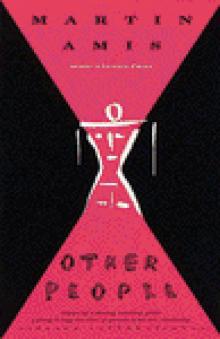 Other People
Other People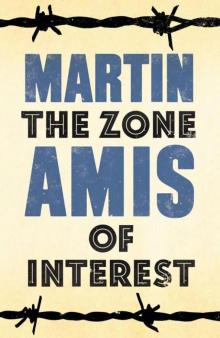 The Zone of Interest
The Zone of Interest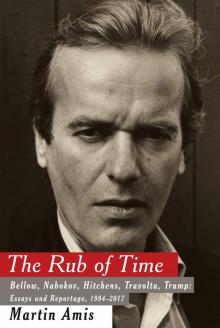 The Rub of Time: Bellow, Nabokov, Hitchens, Travolta, Trump
The Rub of Time: Bellow, Nabokov, Hitchens, Travolta, Trump Koba the Dread
Koba the Dread Success
Success London Fields
London Fields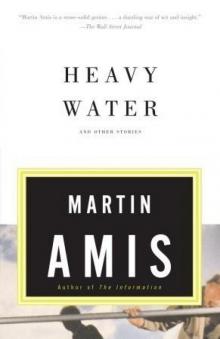 Heavy Water: And Other Stories
Heavy Water: And Other Stories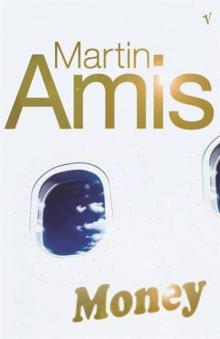 Money
Money The Moronic Inferno and Other Visits to America
The Moronic Inferno and Other Visits to America Yellow Dog
Yellow Dog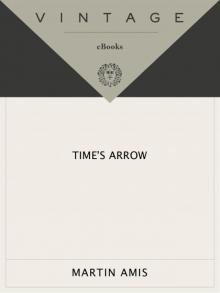 Time's Arrow
Time's Arrow Experience: A Memoir
Experience: A Memoir Einstein's Monsters
Einstein's Monsters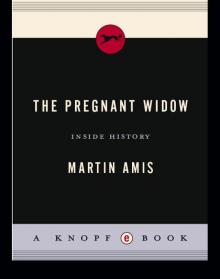 The Pregnant Widow
The Pregnant Widow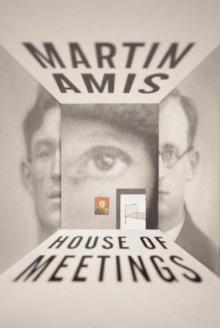 House of Meetings
House of Meetings The Information
The Information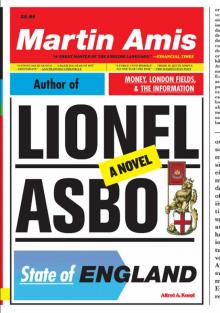 Lionel Asbo: State of England
Lionel Asbo: State of England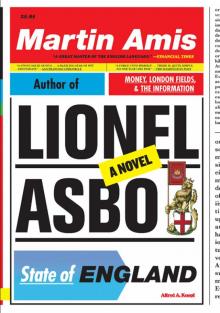 Lionel Asbo
Lionel Asbo Heavy Water and Other Stories
Heavy Water and Other Stories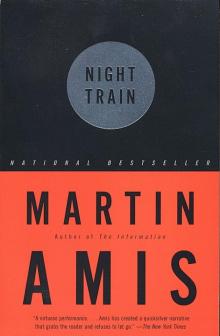 Night Train
Night Train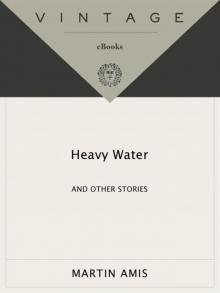 Heavy Water
Heavy Water The War Against Cliche: Essays and Reviews 1971-2000 (Vintage International)
The War Against Cliche: Essays and Reviews 1971-2000 (Vintage International)